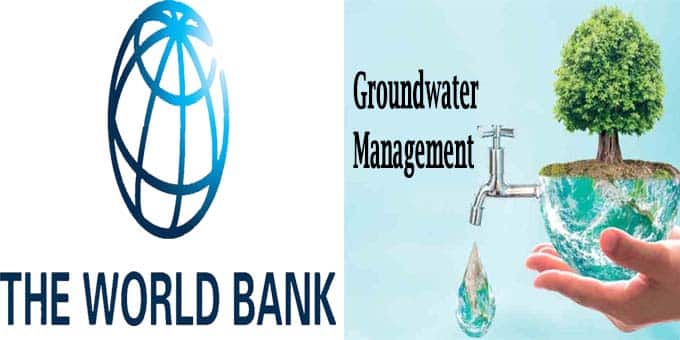On February 17, 2020, The Government of India (GoI) and the World Bank(WB) have inked a $ 450 million (mn) loan agreement to support Atal Bhujal Yojana (ABHY) – National Groundwater Management Improvement Program that will be implemented by the Ministry of Jal Shakti in the states of Gujarat, Maharashtra, Haryana, Karnataka, Rajasthan, Madhya Pradesh, and Uttar Pradesh (UP) and cover 78 districts.
The main aim of this agreement is to stop the decreasing level of ground water in India and strengthen the institutions related to ground water. Key Points:
Key Points:
i.The loan agreement was signed by Shri Sameer Kumar Khare, Additional Secretary, Department of Economic Affairs, on behalf of the Government of India and Mr Junaid Ahmad, Country Director, India on behalf of the World Bank.
ii.This new project to Improve Groundwater Management will promote the recharge of aquifers, initiate steps related to water conservation, enhance the action related to water harvesting, water management and crop conformity& also will create an institutional structure for sustainable groundwater management and communities for sustainable management of ground water.
iii.The use of modern technology related to Artificial Intelligence (AI) and Space Technology will further aid in better implementation of this program. This program will also help rural people to strengthen the rural economy in the context of climate change.
iv.The $450 million loan, from World bank’s arm International Bank for Reconstruction and Development (IBRD), has a 6-year grace period, and a maturity of 18 years.
About Atal Bhujal Yojana (ABHY):
ABHY(or, Atal Jal), a Rs.6,000 Crore Central Sector Scheme, is a groundwater management scheme launched by Prime Minister (PM) Narendra Modi on the 95th birth anniversary of former Prime Minister Atal Bihari Vajpayee, on 25 December 2019 with the aim to improve groundwater management in 7 states of India.
Nodal Agency: Department of Water Resources, River Development & Ganga Rejuvenation, Ministry of Jal Shakti.
Under this scheme 78 districts, 193 blocks and 8350 gram panchayats of these states have been included.





